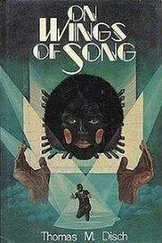“A large size. Eighteen? And tall.”
“Well, let me show you what we have.” And he led Shrimp, enraptured, into the farther twilight of the shop.
She’d met Shrimp at one of the open sessions of The Asylum, where having come to recruit she’d found herself, in the most shameful way, recruited—to the point of tears and, beyond tears, of confessions. All of which January reported faithfully at the next meeting of the cell. There were four cell members besides herself, all in their twenties, all very serious, though none were intellectuals or even college dropouts: Jerry and Lee Lighthall, Ada Miller, and Graham X. Graham was the link upward to the organization but not otherwise “leader” since one thing they were against was pyramidal structures.
Lee, who was fat and black and liked to talk, said what they were all thinking, that having emotions and showing them was a completely healthy direction. “Unless you said something about us?”
“No. It was more just sexual things. Or personal.”
“Then I don’t see why you brought it up here.”
“Maybe if you told us something more about it, Jan,” Graham suggested, in Graham’s gentle way. “Well, what they do at The Asylum—”
“We’ve all been to The Asylum, honey.”
“Stop being a fucking bully, Lee,” his wife said.
“Lee’s right, though—I’m taking up all our time. Anyhow I was there early, sort of sizing them up as they came in, and I could tell the minute this one arrived—her name is Shrimp Hanson—that she wasn’t one of the regulars. I think she noticed me right away too. Anyhow we started off in the same group, breathing and holding hands and all that.” Ordinarily January would have firmed up a narrative of this length with some obscenities, but any resemblance to bluster now would only have made her feel sillier than she did. “Then she started massaging my neck, I don’t know, in a particular way. And I started crying. For no reason at all I started crying.”
“Were you up on anything?” Ada asked.
January, who was stricter than any of them on that score (she didn’t even drink Koffee), could legitimately bridle. “Yeah, on your vibrator!”
“Now, Jan,” said Graham.
“But she was up,” she went on, “very much up. Meanwhile the regulars were swarming around us like a pack of vampires. That’s what most of them come there for, the sludge and the blood. So we went off into one of the booths. I thought we’d screw and that would be that, but instead we started talking. That is, I did—she listened.” She could remember the knot of shame, like the pain of a too sudden swallow of water, as the words came out. “I talked about my parents, about sex, about being lonely. That kind of thing.”
“That kind of thing,” Lee echoed, supportively.
January braced herself and took a deep breath. “About my parents. I explained about their being Republicans, which is all right of course, but I said that I could never relate sexual feelings with love because of their both being men. It doesn’t sound like much now. And about being lonely I said—” she shrugged, but also she closed her eyes “—that I was lonely. That everyone was lonely. Then I started crying again.”
“You covered a lot of ground.”
She opened her eyes. No one seemed to be angry with her, though they might have taken the last thing she’d said as an accusation. “We were at it most of the fucking night.”
“You still haven’t told us anything about her,” Ada observed.
“Her name is Shrimp Hanson. She said she’s thirty, but I’d say thirty-four, or older even. Lives somewhere on East 11th, I’ve got it written down, with a mother and I can’t remember how many more. A family.” This was, at root, exactly what the organization was most against. Authoritarian political structures only exist because people are conditioned by authoritarian family structures. “And no job, just her allowance.”
“White?” Jerry asked. Being the only nonblack in the group, it was diplomatic for her to be the one to ask.
“As fucking snow.”
“Political?”
“Not a bit. But I think she could be guided to it. Or on second thought—”
“How do you feel about her now?” Graham asked.
He obviously thought she was in love. Was she? Possibly. But just as possibly not. Shrimp had reduced her to tears; she wanted to pay her back in kind. What were feelings anyhow? Words floating through your head, or hormones in some gland. “I don’t know what I feel.”
“What is it you want us to tell you then?” Lee asked. “Whether you should see her again? Or whether you’re in love? Or if you should be? Lordie, girl!” This, with a heave of all that good-natured fat. “Go ahead. Have fun. Fuck yourself silly or cry your heart out, whatever you like. No reason not to. Just remember, if you do fall in love— keep it in a separate compartment.”
They all agreed that that was the best advice, and from her own sense of being defluttered she knew it was what she’d wanted to be told. Now they were free to go on to basics—quotas and drops and the reasons why the Revolution, though so long delayed, was the next inevitable step. Then they left the benches and for an hour just enjoyed themselves. You would never have thought, to look at them, that they were any different from any other five people on the roller rink.
5. Richard M. Williken (2024)
They would sit together in the darkroom, officially the bedroom of his son. Richard M. Williken. Jr. Richard Jr. existed for the sake of various tiles in offices about the city, though upon need a boy answering to the name could be got on loan from his wife’s cousin. Without their imaginary son the Willikens could never have held on to a two-bedroom apartment now that their real children had left home.
They might listen to whatever tapes were being copied usually since they were his specialty to Alkan or Gottschalk or Boagni. The music was the ostensible reason, among other ostensible reasons such as friendship, that she hung around. He would smoke, or doodle, or watch the second hand simplify another day. His ostensible reason was that he was working, and in the sense that he was copying tapes and taking messages and sometimes renting out, for next to nothing an hour, his fictitious son’s bed, he was working. But in the sense that counted he was not.
The phone would ring. Williken would pick it up and say. “One-five, five-six.” Shrimp would wrap herself in her thin arms and watch him until by the lowering of his eyes she knew the call wasn’t from Seattle.
When the lack of some kind of mutual acknowledgment became too raw they would have pleasant little debates about Art. Art: Shrimp loved the word (it was right up there with “epithesis,” “mystic,” and “Tiffany”), and poor Williken couldn’t leave it alone. Despite that they tried never to descend to the level of honest complaint, their separate, secret unhappinesses would find ways to poke up their heads into the long silences or to become, with a bit of camouflage, the real subjects of the little debates, as when Williken, too worn out to be anything but serious, had announced: “Art? Art’s just the opposite, true heart. It’s patchwork. It’s bits and pieces. What you think is all flow and force— ”
“And fun,” she added.
“—are an illusion. But the artist can’t share it. He knows better.”
“The way prostitutes aren’t supposed ever to have orgasms? I talked to a prostitute once, mentioning no names, who said she had orgasms all the time.”
“It doesn’t sound very professional. When an artist is being entertained his work suffers.”
Читать дальше












